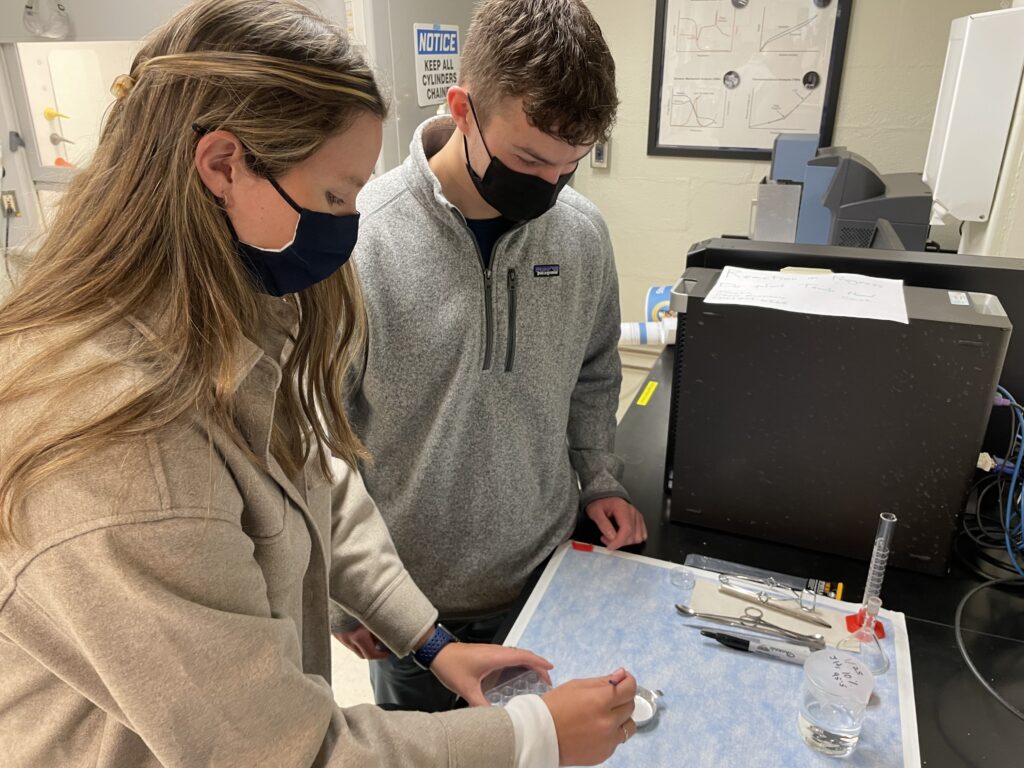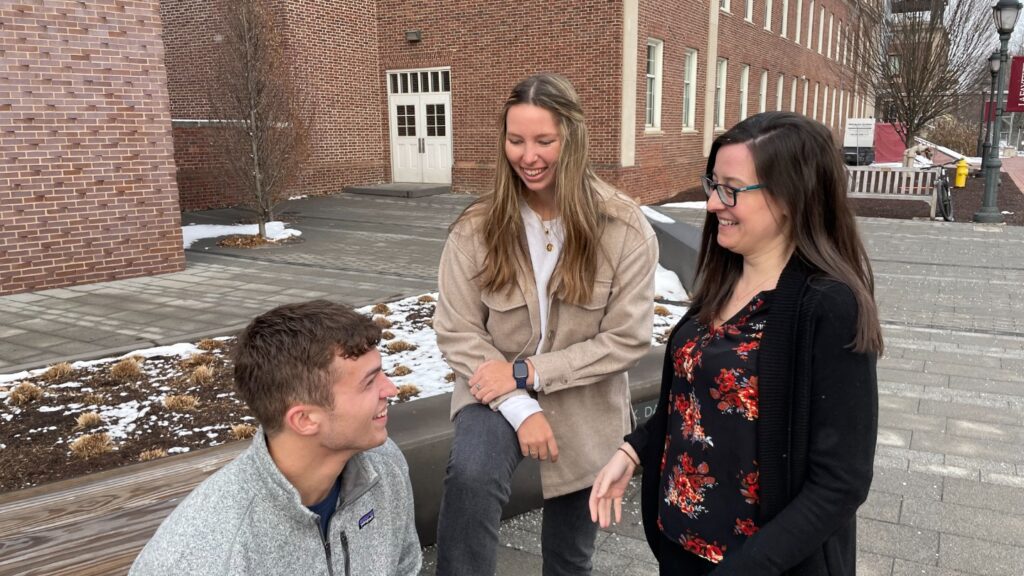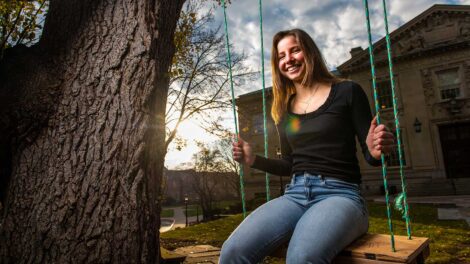Chemical engineering students get grad-level experience
By Bryan Hay
During a recent job interview, Abby Devlin ’22 was asked about her graduate-level experience assisting one of her professors with her research.
“That really stood out to me,” Devlin says, adding that the automatic assumption made about her being a grad student reinforced every reason why she chose Lafayette College. “My experience here is uniquely Lafayette because at other institutions, you’re not going to get that intimate research focus.”
Devlin and Jimmy Hastie ’22, both chemical engineering majors, have been supporting Melissa Gordon ’11, assistant professor of chemical and biomolecular engineering, with her research in force-responsive synthetic polymeric materials. Her work has earned her a National Science Foundation Faculty Early Career Development Program (CAREER) award, the agency’s most prestigious recognition of early-career faculty.

Abby Devlin ’22 and Jimmy Hastie ’22 working in the polymer lab at Acopian Engineering Center
Hastie has been benefiting from a grad-level Lafayette experience since his first year when he worked with Gordon on her biodegradable plastic research project.
“Right away you have these opportunities to shadow upperclassmen, and they kind of show you the ropes, walk you through the lab, and talk about some of the interesting stuff that they’re working on,” says Hastie, who’s considering a career in materials engineering.
“I was lucky enough in my sophomore year to begin working on this latest polymer project with Prof. Gordon,” he adds. “It’s a very unique opportunity. You get so much responsibility in a research lab at such a young age. It’s very much like a graduate-level experience.”
Gordon says her two student research assistants provided valuable support as she prepared her detailed submission to the National Science Foundation.

Jimmy Hastie ’22 and Abby Devlin ’22 support Prof. Melissa Gordon in her polymer research.
During the height of the pandemic, she and Hastie spent long stretches on Zoom to brainstorm ideas, organize the proposal, and locate literature that was cited in the submission, and Devlin did troubleshooting to overcome challenging procedural protocols.
“Both of them collected much of the preliminary data that supported my plans and my proposal,” Gordon says. “They actually showed the data that supported the hypotheses that I was making. They’ve been working together so effectively.”
Devlin, who plans a career in the pharmaceutical or biotech industries, said she was drawn to Gordon after reading an article on the College’s news site about one of her other grant proposals.
“I saw what her research was about, and it was really interesting to me,” she recalls. “So I reached out and actually started working in the lab in August 2020. At the time, only a small number of students were on campus due to the pandemic.
“So it was a unique experience. But it was a really good way to just hit the ground running,” says Devlin, who’s a defensive specialist on the Lafayette College volleyball team. “And I found the experience super valuable, especially in job interviews. It’s a really good experience to talk about.”
Gordon also remembers her own graduate-style experience at Lafayette College, working with both a chemical engineering and chemistry professor. “It was really meaningful to me and helped me get into graduate school and earn my Ph.D.,” she says. It’s a hallmark of the Lafayette tradition, where students get to work directly with faculty instead of a graduate student who may serve as an intermediary between students and faculty.
“Our experience is purely Lafayette, because you’re not going to get that solely undergraduate focus research opportunity at many other locations,” Devlin says. “Opportunities such as this are why we chose Lafayette.”

